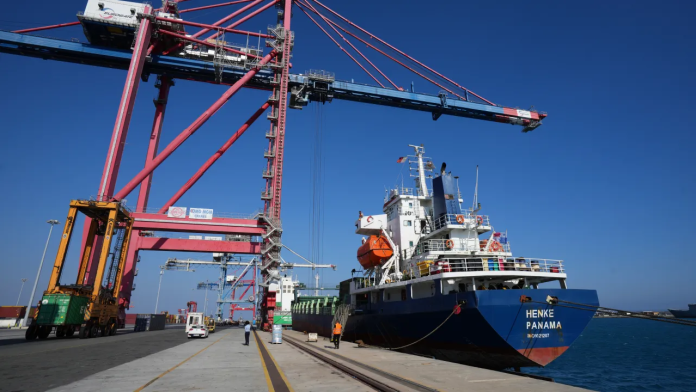A substantial maritime aid initiative is currently underway as a Panamanian-flagged ship, transporting 1,200 tonnes of essential food supplies, approaches the Israeli port of Ashdod, according to Euronews.
This delivery forms a critical component of international efforts to address the severe humanitarian crisis in Gaza, where famine conditions are intensifying amid ongoing conflict. The cargo, which includes pasta, rice, infant formula, and canned goods, underwent rigorous Israeli inspection at the Cypriot port of Limassol prior to departure.
The aid shipment represents a collaborative multinational endeavour. Approximately 700 tonnes of the supplies were funded by the United Arab Emirates through the Amalthea Fund, a mechanism established last year to coordinate seaborne humanitarian donations.
The remainder comprises contributions from Italy, the Maltese government, a Catholic religious order in Malta, and the Kuwaiti NGO Al Salam Association. Cyprus’s Foreign Ministry emphasised that while the United Nations is leading this initiative, the operation involves coordinated logistics with multiple partners.
Upon offloading in Ashdod, UN personnel will oversee the transportation of supplies to storage facilities and distribution points operated by World Central Kitchen, a charity with established trust and operational experience in Gaza.
This maritime approach is recognised as far more effective than aerial aid drops, capable of delivering significantly larger volumes of essential goods. Cyprus served as a pivotal hub for similar operations in 2024, facilitating the delivery of 22,000 tonnes of aid via a pier managed by World Central Kitchen and a US military-supported docking system.
Deteriorating humanitarian context and ceasefire developments
The aid shipment arrives amid escalating violence and dire humanitarian conditions. On Tuesday, local hospitals reported at least 26 Palestinian fatalities, including eight individuals killed in Israeli strikes on displacement tents in Khan Younis and four in Deir al-Balah.
Meanwhile, a Hamas source confirmed on Monday that the group had accepted a renewed ceasefire proposal mediated by Egypt and Qatar, based on a framework advanced by US envoy Steve Witkoff in June. The proposal outlines a 60-day truce and the phased release of approximately half of the remaining hostages held in Gaza.
However, Israeli Prime Minister Benjamin Netanyahu’s office has previously insisted that any agreement must secure the immediate release of all hostages in a single phase, leaving the response to Hamas’s acceptance uncertain.
Netanyahu has additionally dismissed reports of widespread starvation in Gaza as “lies” propagated by Hamas, despite the UN warning last week that malnutrition rates have reached unprecedented levels since the conflict began.
The Integrated Food Security Phase Classification (IPC) confirms famine thresholds have been exceeded in Gaza City, with over one million Palestinians facing emergency food insecurity.
